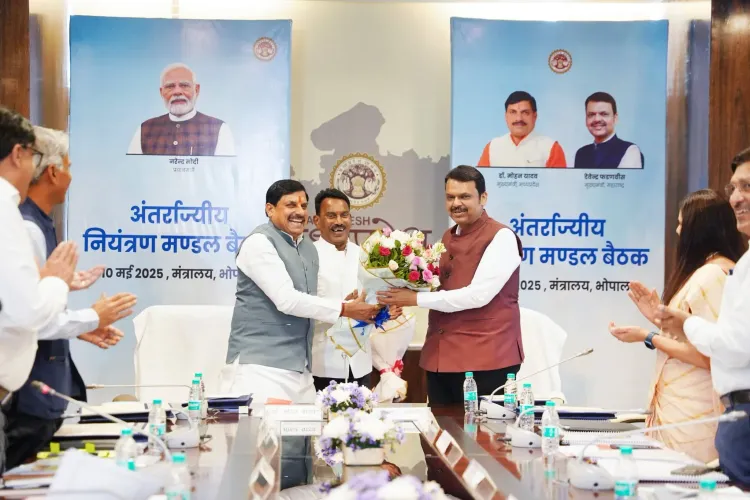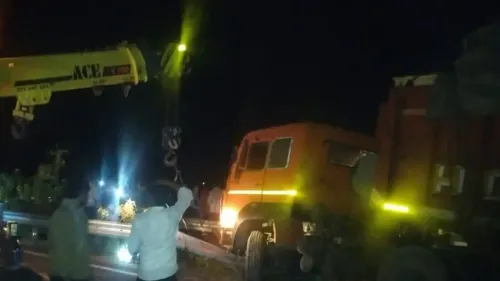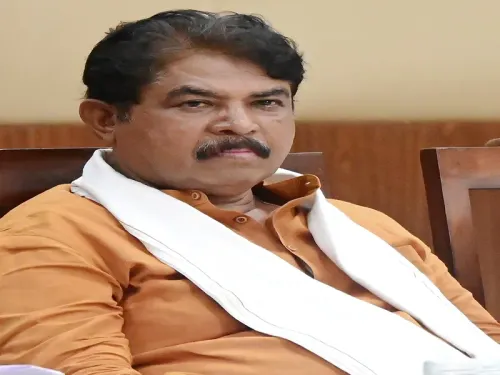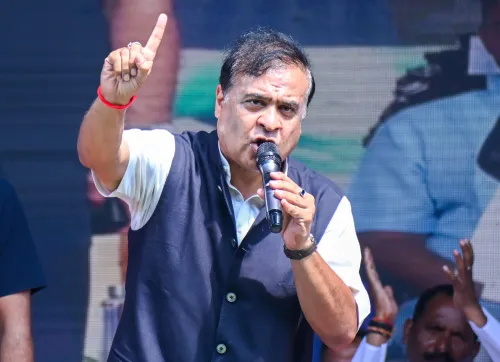Did MP and Maharashtra Sign a Pact for the Tapti Basin Recharge Project?

Synopsis
Key Takeaways
- Historic collaboration between Madhya Pradesh and Maharashtra for sustainable water management.
- World's largest groundwater recharge initiative to enhance agricultural irrigation.
- Focus on equitable water distribution and management of 247 rivers.
- New irrigation infrastructure expected to benefit Burhanpur and Khandwa.
- Commitment to resolving water-sharing disputes between states.
Bhopal, May 10 (NationPress) In a significant step towards inter-state river collaboration, the governments of Madhya Pradesh and Maharashtra have formalized an agreement for the 'Tapti Basin Mega Recharge Project', recognized as the world's largest groundwater recharge initiative.
The project aims to promote sustainable water management in both Madhya Pradesh and Maharashtra.
On Saturday, Maharashtra Chief Minister Devendra Fadnavis and Madhya Pradesh Chief Minister Dr Mohan Yadav signed the agreement in Bhopal.
Describing the partnership as historic, Chief Minister Fadnavis commended Prime Minister Narendra Modi for his role in advancing the project beyond initial planning stages. He emphasized the substantial benefits expected, with Madhya Pradesh receiving irrigation for 1.31 lakh hectares and Maharashtra facilitating irrigation for 2.34 lakh hectares, especially in saline areas.
Both leaders expressed their determination to elevate this initiative further, planning to approach the Central Government to classify it as a national scheme, similar to the Ken-Betwa river-linking project. CM Yadav highlighted Madhya Pradesh's rich water resources and the need to effectively manage its 247 rivers. He detailed plans to enhance three streams of the Tapti River to maximize agricultural irrigation, ensuring the efficient use of water resources. The project will harness 31.13 TMC (Thousand Million Cubic Feet) of water, with Madhya Pradesh allocated 11.76 TMC and Maharashtra receiving 19.36 TMC.
Importantly, the project will require 3,362 hectares of land without displacing any villages, thus negating the need for rehabilitation. Ensuring fair water distribution remains paramount, as both states work to resolve persistent water-sharing disputes. The governments are committed to advancing the Tapti and Kanhan river projects in a manner that respects environmental conservation while catering to agricultural and industrial needs.
The new irrigation infrastructure is poised to greatly benefit the Burhanpur and Khandwa districts, enhancing agricultural productivity. In tandem with this project, the Chhindwara Complex Multipurpose Project aims to optimize water usage within the Kanhan sub-basin, benefiting Chhindwara’s agricultural lands while addressing water needs in Nagpur, marking another milestone in interstate collaboration.
Madhya Pradesh's dedication to efficient water management extends beyond this initiative, as it continues working with Rajasthan and Uttar Pradesh on similar river-linking projects, according to Chief Minister Yadav. He further stated that this initiative will create a permanent irrigation system, benefiting thousands of hectares across both states, especially in key tehsils of Burhanpur and Khandwa.
Madhya Pradesh has recently commenced work on the Parvati-Kali Sindh-Chambal project in collaboration with Rajasthan and is advancing the Ken-Betwa river-linking project with Uttar Pradesh; similar efforts are now being pursued with Maharashtra through the third National River Water Project.










